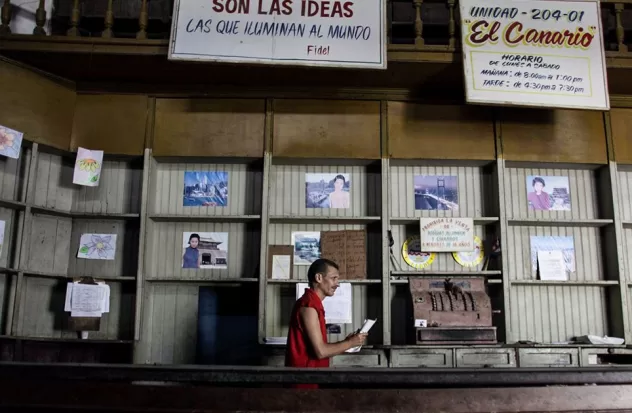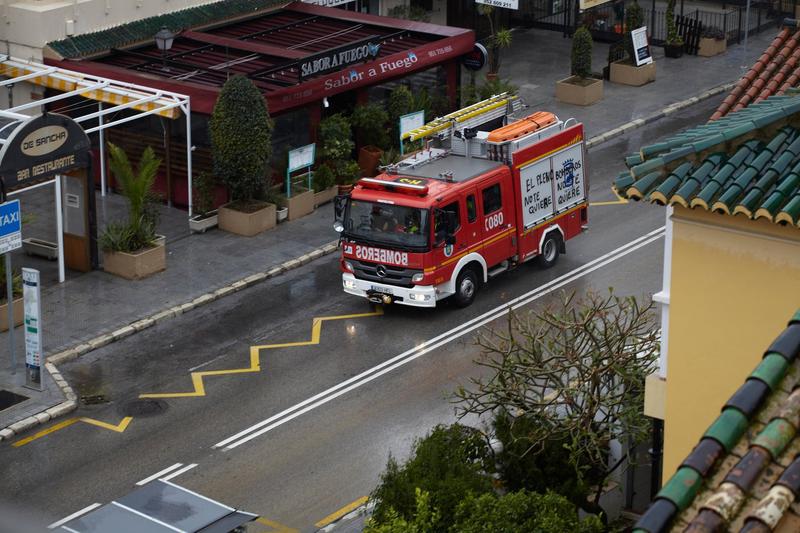HAVANA.- Nobody expects good news on the Island for the year that has just begun. Quite the opposite. If you ask Isaac, 76, about the country’s economic performance, after listing the origins of the current political nonsense, the retired university professor summarizes the future of Cuba with a phrase: “The worst is yet to come.”
The former university professor considers that Fidel Castro’s revolution “was a successful propaganda operation during the Cold War period, focused on selling a narrative that seduced the Latin American and European left. He established a communication and political structure subsidized by the former USSR and after the fall of the Berlin Wall, financed by the petrodollars of Hugo Chávez. The military, intelligence and subversion apparatus was not in line with that of a poor and underdeveloped nation that was never a center of world power. “Fidel’s ego, who believed himself to be Alexander the Great, has been the capital sin that has subsequently condemned the future of Cuba.”
“Those Castro policies were a mistake. The Cuban army participated simultaneously in two wars in Africa, was involved in the Colombian, Nicaraguan and Salvadoran guerrillas in addition to supporting and financing dissimilar seditious groups on the continent, some considered terrorists. This strategy was financed by the Kremlin, drug trafficking and various guerrilla movements in the region. This onerous financial expense starting in the 1960s hampered the possibility of designing a sustainable and functional economic model.
“The failure of the 1970 harvest and many other absurdities, in addition to an erroneous design of economic planning and financial control, are key to the subsequent decapitalization of the agricultural and industrial sector. Those waters have brought this sludge. And the mediocrity of those who govern the country today, rather than continuity, will probably become the gravediggers of the ‘Cuban revolution’. I don’t know how we can get out of the quagmire. Each package of measures that Díaz-Canel applies sinks the island further into the mud,” asserts the retired professor.
Most ordinary Cubans are very pessimistic when referring to the economy. Yunier, a messenger for a private business, states that “very few believe that the current leaders can overcome inflation. Díaz-Canel has been in government for five years and none of his measures have managed to reverse the economic crisis. Every year that passes, we go further backwards. We haven’t just hit rock bottom. Meanwhile, the dollar continues to rise. And the rulers, instead of focusing on improving the economy, unleash a witch hunt against self-employed workers.”
According to the independent publication El Toque, on Sunday, February 18, the dollar was trading at 305 pesos and the forecast is that it will close the month of February around 310 pesos. Diario Las Américas asked Gustavo, an economist, how the rise in the dollar impacts the lives of Cubans.
The expert assures that the greenback of the number one enemy of the Castro regime “is an essential barometer in the internal economy. Both private and state. It is common that in times of crisis, a sector of the population and entrepreneurs use the dollar as a refuge currency. The reason why the dollar is capital right now in Cuba is simple: almost two million Cubans live in the United States who send dollars as remittances or loans to open businesses. “90 percent of MSME transactions and other private sector import transactions are made in dollars, as they buy in the US market, taking advantage of the fact that the economic embargo does not prevent them.”
“This deficit impacts demand, which in turn, due to the economic crisis that has caused a brutal shortage of food, medicine and other goods, many families are forced to buy foreign currency to acquire certain merchandise that is not sold for pesos. in state commerce. This affects the depreciation of the national currency. A very complicated context. A true perfect storm where the poorly applied economic adjustment measures by the government, the intensification of the embargo imposed by Trump and the pandemic stage overlap. “, which caused an increase in prices in food and maritime transportation worldwide. All of this has had an impact on the increase of the dollar in Cuba,” Gustavo emphasizes.
Asked about the culprit of the economic mess that is being experienced in the country, the economist answers: “When Díaz-Canel and his ministers talk about distortions in the economy, they do not explain that since the time of Fidel Castro the erroneous policy of having various types of currency exchanges, imposing an arbitrary and artificial rate on the dollar and having the State control most of the economic sectors, when times of crisis arrive and certain areas are released, when the dollar floats freely, what we are seeing happens. “And predicts that until the government approves profound reforms and allows productive forces to be unleashed, “the dollar could be around 400 pesos.”
Every time the dollar rises one peso, the salary of the more than four million state workers, the main workforce on the Island, is devalued. Marlén, an engineer, says that in “January 2021, when the task was implemented organization, my salary rose to eight thousand pesos. At that time the dollar was trading at 40 pesos and on the street you could buy 200 dollars. Three years later, due to the rise of the dollar, my salary is only $26. And in Cuba, if you have no dollars, you will die of hunger.”
Yamila, owner of a store that imports and sells clothing from the Chinese brand SHEIN, affirms that the new taxes implemented by the government could generate a significant inflationary increase.
“Two things can happen. That many MSMEs and other businesses close, suffocated by taxes, or that they increase prices to balance the tariff increase. Before, a worker paid 5 percent tax on his salary, now he must pay 20 percent. And for the majority of small businesses that import goods that are not of interest to the government, taxes are raised by 50 percent.”
“They attack private administrations that have created one million 600 thousand jobs with taxes of 35% on profits, with another 10 percent on sales and services provided, a 5 percent tariff for the use of force of work, pay one percent to support local governments and social security contributions equivalent to 14 percent of workers’ salaries. Not to mention that MSME owners have to pay up to 20 percent in taxes on dividends. All those payments are to prevent you from earning a lot of money. The government is allergic to wealth, unless it is for them,” Yamila concludes.
For many in Cuba, 2024 will be a terrible year.



